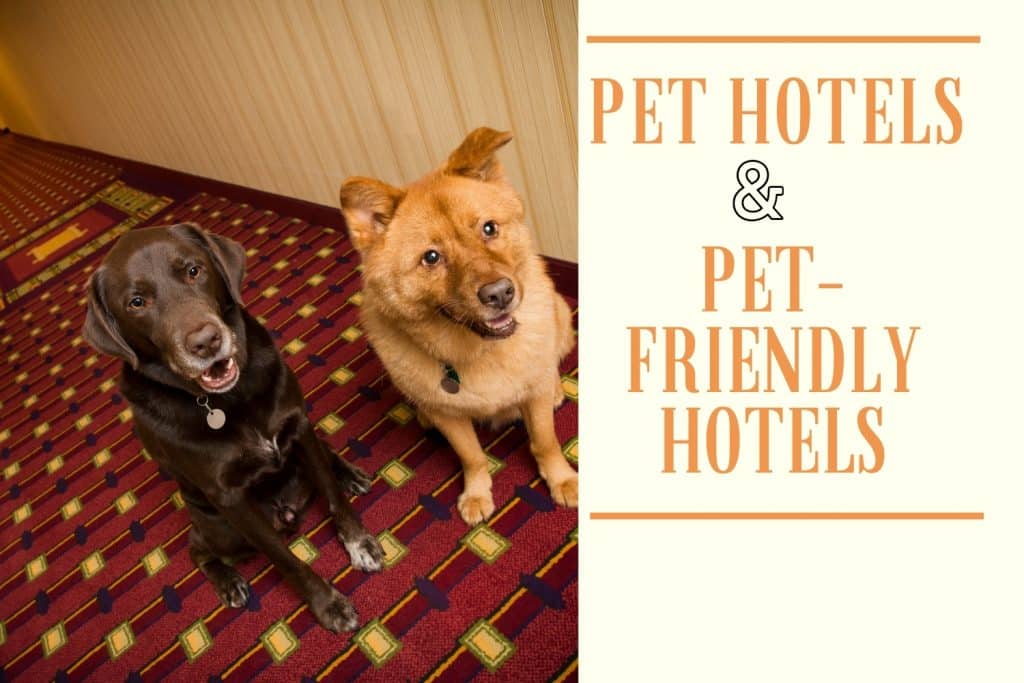
There are similarities as well as differences. Let’s start with the first: both types of hotels are becoming more and more popular. The difference: pet-friendly hotels welcome people with pets. Pet hotels are where you leave your pet when you’re traveling. People opt for them because they aren’t able to take their pets along on their trip.
Pet owners either want to travel with their pets or leave them with someone they can trust, be it at a hotel or at home. They expect hotels to have the proper facilities and equipment. Today, many people expect the same type of experience and services for their pets as they would for their children.
Companies are taking this into account. The European airline EasyJet is now offering a pet-sitting service for travelers who don’t want to leave their pets alone at home.
Pets are Becoming Customers
Pets will be tantamount to customers in the immediate future. Hoteliers are working on figuring out how to bring the same hospitality to them as they do to their human clients. The first pet hotel in El Gouna, Egypt has done marvelously for itself. It’s actually put the city on the map.
In the years after the hotel opened, pet owners started traveling to the city because they knew they could leave their pets there. This hotel even has a pet playground.
Boom in Pet-Friendly Hotels
The boom in pet hotels runs parallel to that in pet-friendly ones. Small hotels and franchisees alike have started offering travelers this feature.
Hotel owners and managers find their properties are winning over new customers very quickly. The amount of money pet owners are spending on their loved ones is always on the rise. Back in 2016, the pet industry reached $66 billion.
This blends into hospitality expenses. Many hotels are making the extra effort to ensure furry travelers’ comfort. They offer amenities like dog runs, outdoor play areas, and special dishes.
One novel extra is “canine cuisine” with special menus for dogs. Knowing their dog will enjoy a delicious meal at the hotel makes guests more likely to dine in or order room service instead of eating out.
Perks for Pet-Friendly Hotels
Not only guests but also hotels enjoy certain benefits. By offering pet cuisine, they can command higher room rates. They can also charge a pet fee. Travelers can book a room online and choose special amenities and services at online checkout. Pet-friendly hotels tend to be booked in every season, not just the tourism season in the area.
Pet-friendly accommodations provoke brand loyalty, which is another advantage for hotels. Customers will be inclined to book again if they know their pet will be welcomed at that particular hotel. It’s a great convenience. When traveling with pets, people have to remember to pack toys, dishes, dog blankets, dog beds, and more.
This means a lot of extra time and effort. If the hotel helps by offering these things on location, the guest will really appreciate it.
Unsurprisingly, millennials own the highest number of pets of all generations. The tendency to humanize pets will only develop further.
Industry representatives have been anxious to see the impact of this generation on their livelihood, but millennials are spending at unprecedented rates.
Principles of Successful Hotels
The most successful establishments tend to share certain principles. They don’t go without setting rules for pet owners. Having a clear set of rules and policies on pets is critical.
Ideally, the hotel should publish these on its website and advertising materials. One important rule is to designate areas where pets are allowed and areas where they aren’t. For example, you might forbid pets around the pool and food and beverage areas of your pet-friendly hotel.
There should always be designated pet zones. Availability of walking trails in the area should be communicated to travelers with dogs.
Types of Pets Allowed
Obviously, you don’t have to have a dog or cat as a pet. Hotels make different decisions regarding the size, number, and type of animals they allow on their premises.
A maximum of two pets per client is a good policy for a pet-friendly hotel. Pricing should be clear and upfront. Customers need to know what pets they can bring and what it will cost them before coming.
Define Owner Liability
The best hotels inform guests of their liability for personal injury or furniture damage caused by their pets. Owners should keep dogs on leads. Measures must be taken to prevent barking at night so as not to disturb other guests.
